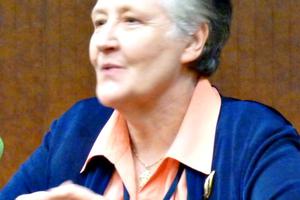Cardinal O’Malley Says Listening to Abuse Survivors Is Crucial
In an interview with Vatican News Sunday, Cardinal Sean O’Malley of Boston said Church leaders must listen to abuse survivors’ experiences to respond properly to the sexual abuse crisis

VATICAN CITY — In an interview with Vatican News Sunday, Cardinal Sean O’Malley of Boston said Church leaders must listen to abuse survivors’ experiences to respond properly to the sexual abuse crisis
“Bringing the voice of survivors to the leadership of the Church is crucial if people are going to have an understanding of how important it is for the Church to respond quickly and correctly any time a situation of abuse may arise,” Cardinal O’Malley said in an interview published Sept. 9.
The cardinal is the president of the Pontifical Commission for the Protection of Minors (PCPM), an advisory body to the Pope on safeguarding children and vulnerable adults from sexual abuse. “This must be the priority that we concentrate on right now,” he said.
“We see particularly in light of the present situation, how if the Church is unable to respond whole-heartedly and make this a priority, all of our other activities — of evangelization, works of mercy, education — are all going to suffer.”
Cardinal O’Malley, the archbishop of Boston, said recent events in the Church have caused people to focus on “the urgent need for a clear response” to the sexual abuse of minors.
He emphasized the commission’s focus on listening to abuse survivors and using their testimonies to inform decisions and said that during their most recent plenary meeting, held in Rome Sept. 7-9, the PCPM heard the testimonies of a Latin American woman who is a survivor of abuse by a priest and of the mother of two adult victims from the United States.
At the beginning of the month, the Holy See also held its annual seminars for new bishops, which members of the PCPM addressed. Cardinal O’Malley said that Marie Collins, Irish abuse survivor and former member of the commission, typically speaks to the bishops during the seminar, though this year she sent a video message instead of attending in person.
“Every year when I’ve gone, so many bishops have come up to me and told me that Marie Collins’ testimony was the most important conference they heard during their entire week,” he said.
It is important for bishops to listen to the victims directly to hear, he explained, “from someone who has experienced this horror in their own life [and can] explain to them the consequences and the repercussions for the individual, their family and the whole community.”
He emphasized that the work of the commission is prevention, not investigation. “We are trying to change the future so there will not be a repeat of the sad history,” he said. This includes advising Pope Francis on abuse prevention and promoting guidelines for safeguarding.
They also promote and organize educational programs for the formation of Church leadership “so that our bishops, priests and religious will be aware of the seriousness of this and be equipped to respond and so that they will put the safeguarding of children and the pastoral care of victims as their priority,” he said.
“There’s an English phrase: ‘An ounce of prevention is worth a pound of cure.’ Our job is about prevention and trying to make the Church the very safest place possible for our children and vulnerable adults,” he said.
In a statement on their recent plenary meeting, the PCPM said members reflected on recent developments in the global Church “that have negatively affected so many people including victims/survivors, families and the community of faithful.”
The questions raised in recent months are an opportunity for the public refocus on the seriousness of abuse and “to call people to the mission of prevention so that the future will be different from our history.”
“The Holy Father has emphasized the primary importance of listening to victims/survivors and having their life stories guide the response of the Church in protecting minors from sexual abuse,” it said.
The statement also emphasized that the purpose of the commission is preventing future abuse, not investigating past abuses. It highlighted that since the group’s last plenary meeting in April 2018, members have taken part in over 100 safeguarding workshops around the world.
Long-term projects of the PCPM include planning safeguarding conferences in Central Europe, Eastern Europe and Brazil in April 2019. Members of the commission will also address a meeting of the Bishops’ Conference of Latin America (CELAM) in Mexico in November 2019. They will also co-sponsor a congress on child protection for Church leaders and civil society in Colombia in 2020.
In the near future, the commission will have working meetings with the Congregation for the Doctrine of the Faith and the Italian bishops’ conference.
Cardinal O’Malley said other initiatives include forming survivor advisory panels to inform bishops and the work of the commission and developing an auditing device for bishops’ conferences to measure their implementation and compliance of the safeguarding practices the Holy See has requested of every diocese.
- Keywords:
- marie collins
- pope francis
- sean o'malley
- sex abuse

















